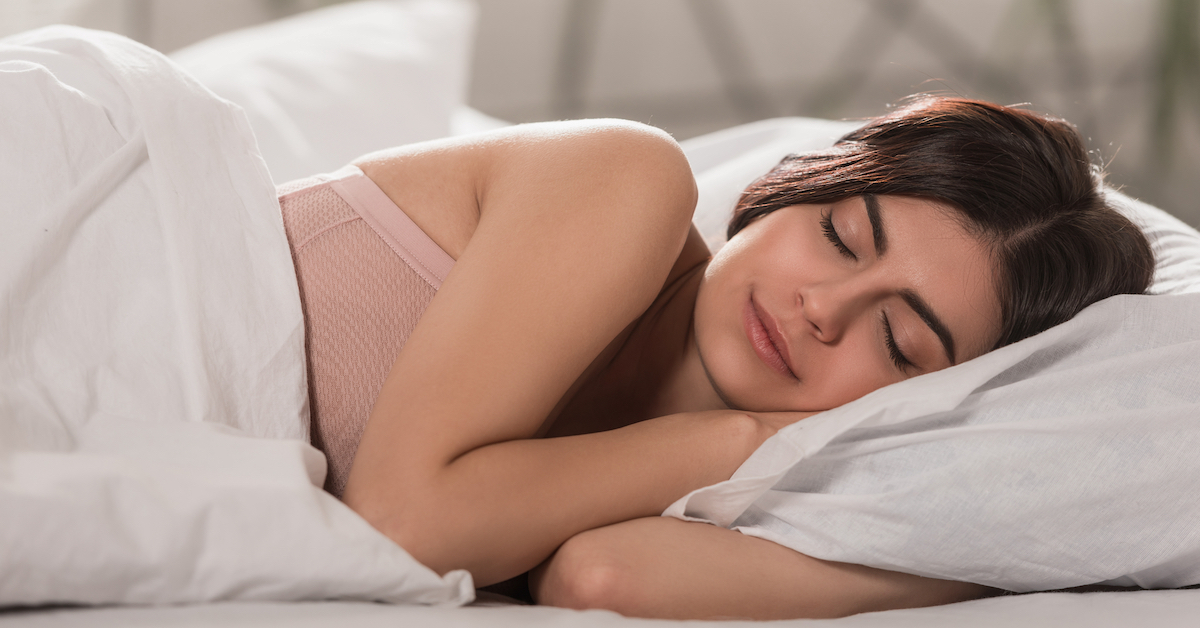Back, side or stomach? If you’re in good health and sleep well, you probably settle into your most comfortable sleep position and think little more about it.
Your brain, however, has its own preferred sleep position. To ignore what it’s telling you could put you at an increased risk of Alzheimer’s. Here’s what you need to know…
The brain is a highly metabolically active organ, and as a result, produces a lot of waste. The waste includes spent and damaged proteins. Research shows that when these proteins are not removed and instead accumulate, memory loss and Alzheimer’s disease can develop.
Researchers theorize that the removal of this waste is critical for healthy brain function and prevention of memory loss. So, just how does your brain remove waste?
How Your Brain Removes Waste
Waste disposal is carried out through a pathway called the glymphatic pathway. It’s here that cerebrospinal fluid (CSF) filters through the brain and exchanges with interstitial fluid (ISF).
Interestingly, this is not much different from the way the body’s lymphatic system removes organ waste.
Since the lymphatic system kicks in mainly during sleep, researchers at Stony Brook and Rochester Universities, New York, theorized that the glymphatic pathway might do the same. And they wanted to know if sleep position could improve the efficiency of the brain’s waste removal. Their findings were surprising…
One Sleep Position Comes Out on Top
For their study, they deeply anesthetized the brains of rodents and lay them on their backs (supine position), chest (prone position), or sides (lateral position).
Then, they injected the rodents with a contrast agent to light up glymphatic transport in real time while using an MRI to scan the brain. In addition, they used kinetic modeling to quantify CSF-ISF exchange rates. (This is a mathematic method of analyzing dynamic processes to predict outcomes.)
Lead author Helene Benveniste summed up the principal finding, saying, “The analysis showed us consistently that glymphatic transport was most efficient in the lateral (side) position when compared to the supine or prone positions.”
Her colleague Maiken Nedergaard explained, saying, “It is interesting that the lateral sleep position is already the most popular in humans and most animals — even in the wild — and it appears that we have adapted the lateral sleep position to most efficiently clear our brain of the metabolic waste products that built up while we are awake.
“The study therefore adds further support to the concept that sleep subserves a distinct biological function and that is to ‘clean up’ the mess that accumulates while we are awake.
“Many types of dementia are linked to sleep disturbances, including difficulties in falling asleep. It is increasingly acknowledged that these sleep disturbances may accelerate memory loss in Alzheimer’s disease. Our finding brings new insight into this topic by showing it is also important what position you sleep in,” she explained.
Many Reasons to Sleep on Your Side
The discovery of the brain’s glymphatic system is relatively recent.
Researchers characterized its mechanisms in animals for the first time as recently as 2012. The newness of the research led Dr. Benveniste to caution that a sleep position study must be conducted in humans before the findings of the mouse study are confirmed to be relevant.
However, a 1983 human study comparing good and bad sleepers found that “poor sleepers spent more time on their backs with their heads straight” while the best sleepers lay on the sides, particularly the right side.
The Sleep Foundation agrees. They state that side sleeping promotes healthy spinal alignment and is least likely to promote back pain, especially with supportive pillows. They also suggest side sleeping is best for older people, and those who snore, suffer with sleep apnea, or have acid reflux.
So, as well as to protect your memory there are many other good reasons to adopt the lateral sleeping position every night.







